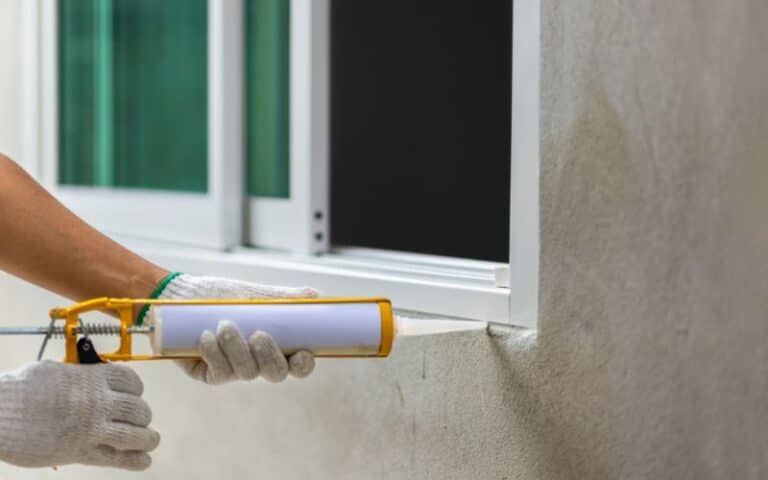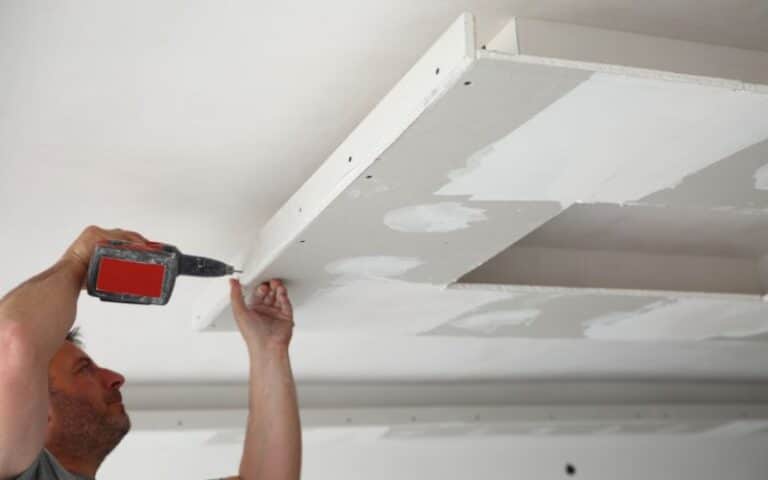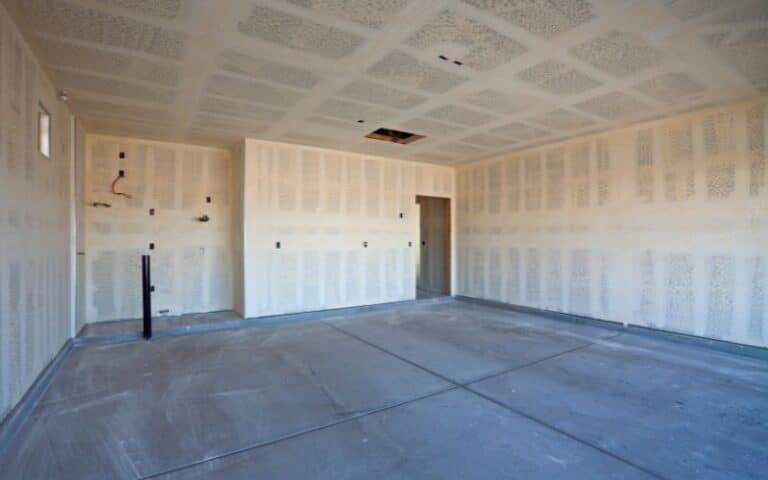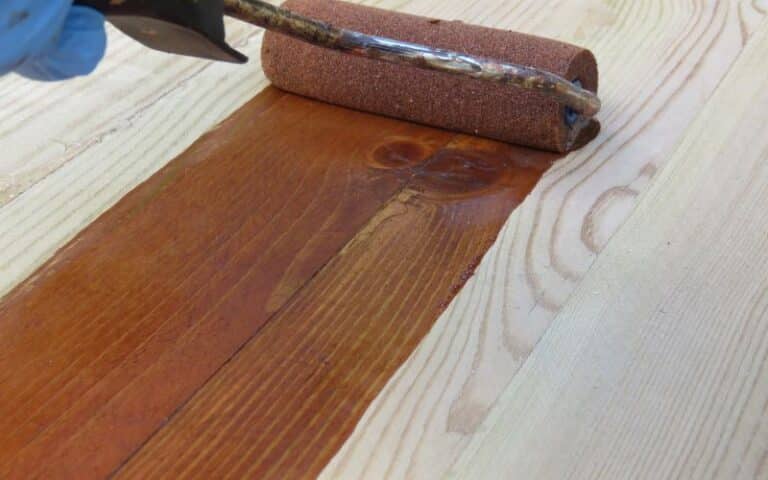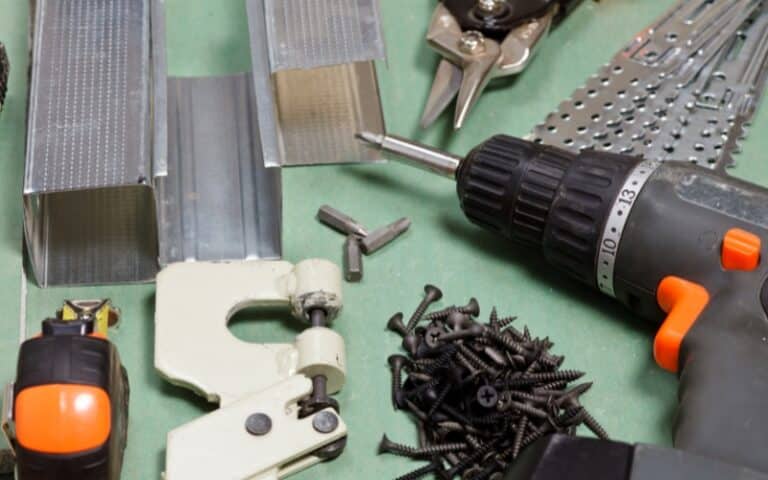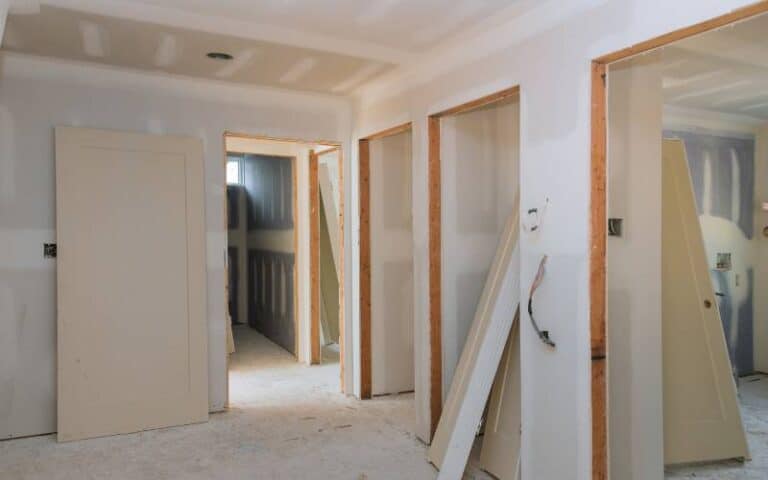Drywall screws are the best type of screws to use when you want to fasten your drywall to wood.
However, when you aren’t dealing with drywall alone, you’ll need alternatives to drywall screws.
That’s why having adequate information about all the available drywall screw alternatives in the market is essential.
Luckily, you’ve visited the right site to learn about drywall screw alternatives.
You can choose from numerous alternatives to drywall screws when considering hanging stuff on your drywall. These alternatives depend on factors such as the construction type and your personal preference. Hence, as alternatives, you can get drywall nails or other screw types such as deck screws, cabinet screws, or wood screws.
I’ve created this guide to show you all the screws you can use in your home as alternatives to drywall screws. Please read on till the end for the complete information.
Ready for a Drywall Quiz?
Drywall Nails
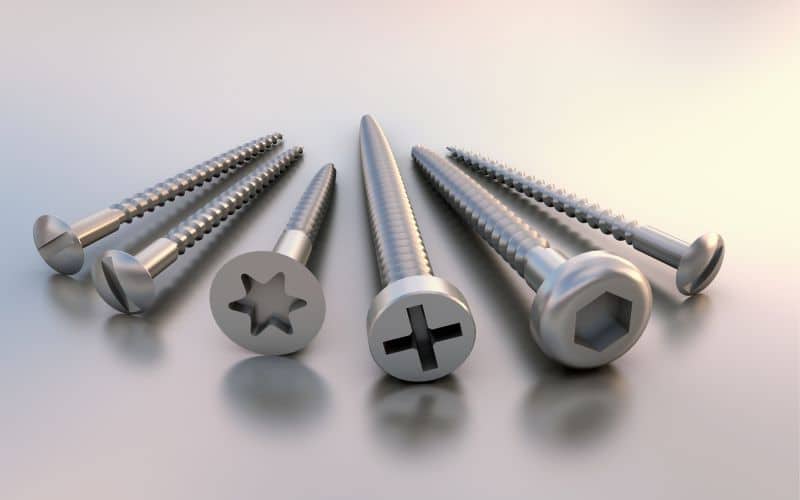
Drywall nails are a good alternative for drywall screws when installing drywalls in your home. They are the cheapest you’ll find as alternatives to drywall screws.
Nails have unique features that make them feasible for installing drywalls with ease.
This table illustrates the pros and cons of drywall nails over drywall screws.
| Pros | Cons |
|---|---|
| Drywall nails are cheaper than screws. | Nails move out of walls faster than screws would. |
| Drywall nails are sturdier than drywall screws. | Screws can handle extreme temperatures better than nails. |
| Nails can withstand shear strength more than screws. | Nails don’t hold drywalls better than screws. |
| Nails are more feasible for wooden walls. | Nails aren’t ideal for metallic walls. |
| Nails tighten easier than screws. | Nails are challenging to remove after making a mistake. |
#1. Cost
Drywall nails are usually more affordable than drywall screws. They are usually within the range of $3 to $15, depending on the number of nails per pack.
Also, you could get drywall nails cheaper or costlier than that, depending on the diameter, quality, brand, and length.
#2. Functionality
Drywall nails are better alternatives to drywall screws in certain aspects; they have better sturdiness and wall grip than screws.
Structurally, drywall nails have elongated bodies with little rings in between to offer hold for walls.
If you don’t want to use drywall screws to save cost or for other reasons, nails will hold your drywalls firmly.
Wood Screws
Wood screws are the most convenient alternatives to drywall screws when you want to screw wood to wood. Drywall screws give better results for drywall-to-wood binding.
In distinction to wood screws, the drywall screw has a flatter head which resists easy slipping of the nail into a wooden wall.
The table below illustrates the pros and cons of a wood screw.
| Pros | Cons |
|---|---|
| Most wood screws give good load capacity. | Wood screws usually require anchors or toggle bolts. |
| Wood screws have sharp nail threading. | Wood screws lack large heads hence, uneven pressure distribution. |
| Wood screws can join many pieces together. | Wood screws lack sharp tips; hence, they can pass through sheetrock less effectively. |
| Wood screws have better torque. | Wood screws can damage hard surfaces. |
| Wood screws provide reasonable clamping force. |
Wood screws are suitable for joining many pieces of wood together. You can use wood screws to fix wooden structures or attach them to hardware, just like in the case of cabinet construction.
Wood screws can also be handy when you want to attach door frames. Also, because of its special tempering, wood screws bend but don’t break easily.
#1. Cost
Wood screws are generally cheaper than deck screws; you can get wood screws for as low as $5, depending on the diameter and quality.
Also, regarding the number of wood screws per pack, getting one can cost you as high as $10.
The good thing about purchasing wood screws is that you wouldn’t need to buy so many of them as compared to the deck or drywall screws.
That’s because a few wood screws would do the job of fastening in no time.
#2. Functionality
Wood screws do the same function as deck screws but can only give fulfilling results when you use them on wooden structures.
Wood screws can fasten wood together; it gives immense clamping force that holds two blocks of wood together in a tight joint.
You can also use wood screws to install locks, hinges, and hardware with excellent results.
Wood screws come in steel; however, you can find them in other material compositions like brass, bronze, nickel, or copper.
Nails that come in the form of steel get corrosive, and that’s why you’ll find most constructors going for other materials of screws rather than steel.
Deck Screws
Deck screws, just as the name suggests, give better results when you use them to fasten decks. Using a deck screw on drywall will do little to nothing but pose the drywall to damage.
Apart from decks, deck screws are good alternatives for fastening fences and other outdoor structures.
Deck screws come in different varieties; self-drilling deck screws, self-countersinking deck screws, and deck screws with a rust-resistant coating.
This table will show you the pros and cons of deck screws.
| Pros | Cons |
|---|---|
| Deck screws are easily bendable. | You can’t use deck screws to fasten drywalls efficiently. |
| Deck screws are a great fit for outdoor use. | Deck screws are expensive. |
| These screws can enter the woods without causing damage. | Deck screws aren’t as sturdy as drywall screws. |
| Most deck screws come with rust-resistant materials. | Deck screws provide less clamping force than wood screws. |
| Deck screws have a larger surface area. | Deck screws are not ideal for heavy traffic or windy projects. |
Deck screws have certain unique qualities that make them ideal for deck construction.
Some of those qualities include;
- Coarse threading
- Sharp points
- Rust-resistant coating
- Perfect for outdoor construction
- Distinctive bugle heads
#1. Cost
Deck screws can cost as low as $12 for 100 pieces and as high as $125 for 2500 pieces.
When purchasing your deck screws, I suggest you seek an expert’s help to avoid buying counterfeit.
#2. Functionality
Deck screws are best suitable for projects that involve varying degrees of temperature. Deck screws are unique screws in that they tend to fit in all temperature states.
That’s because most of them have materials with temperature-resisting properties.
Also, choosing the type of deck screws to use depends on the project at stake and the temperature of your location.
You’ll need deck screws with rust-resistant materials for a cold and wet environment.
Also, apart from the unique coatings of deck screws, they can be used for soft and hardwood applications.
Coarse Deep Thread Pan Head Screw
Coarse thread screws are a convenient alternative when drilling through shallow holes.
This screw type has a design that incorporates coarse deep thread and a pan head.
The coarse thread ensures a solid and effective connection between binding structures, while the pan head provides a fine finish.
This screw type also has a phosphate finish that helps to resist rusting.
Hence, a coarse deep thread pan head screw would be a perfect choice if you’re looking for a screw for both outdoor and indoor use.
The following table shows the pros and cons of coarse deep thread pan head screws.
| Pros | Cons |
|---|---|
| You can use this screw type for low-profile height projects. | These screws are expensive. |
| Coarse thread screws enhance easy torque application. | It requires technical know-how for practical use. |
| These screws give pleasant aesthetics. | Coarse thread screws aren’t as strong as other screw types. |
| It has resistance to unfastening torque. | This screw type tends to loosen easily from vibration. |
#1. Cost
Coarse thread screws cost between $5 to $30, depending on the number of screws per pack.
Quality and material type also influences the cost of coarse-thread screws.
#2. Functionality
Due to the coarse nature of this screw type, there’s less stripping and crossing in woods.
Also, these screws are good alternatives for drywall screws as they’d still function amidst nicks and marring.
Kreg Pocket Hole Screw
Kreg screws are good alternatives for drywall screws if you’re looking for screws that create pocket-hole joinery.
Kreg screws have a unique engineering to hold many pieces together, creating long-lasting joints.
However, if you’re looking for alternatives on your drywall, Kreg screws are a good go-to anytime. They have heads with conical undersides to fit a pocket hole perfectly.
When you drive a Kreg Screw into a pocket hole, its design will propel the torque force straight through the screw tip.
This table contains the pros and cons of Kreg screws.
| Pros | Cons |
|---|---|
| Kreg Screw does not split wood. | Kreg screws aren’t as flexible as drywall screws. |
| Kreg screws are affordable. | Kreg screws snap off more quickly than drywall screws. |
| Kreg screws are easy to use | Kreg screws don’t have a large surface area. |
| Kreg screws are ideal for both outdoor and indoor uses. |
#1. Cost
Kreg screws are affordable; you can get them within the range of $15 to $30.
#2. Functionality
Kreg screws are a great fit when considering screws to tighten wooden structures together.
You can use a Kreg screw on your drywall, but you won’t get the same perfect result as you’ll expect when you use drywall screws.
However, if you’re considering cost, Kreg screws can effectively replace drywall screws with manageable results.
Cabinet Screw
Cabinet screws are a particular type of screw that serves as an excellent alternative to drywall screws when you’re dealing with just cabinet installation.
They have washer-head styles that flush and increase installation power. Also, cabinet screws have coated types that help with rust resistance.
Cabinet screws have a design that reduces installation torque which means quick and secure installation.
Here is a table to show you the pros and cons of a cabinet screw.
| Pros | Cons |
|---|---|
| Cabinet screws are ideal for fixing cabinets. | Cabinet screws don’t have a good-enough surface area. |
| Cabinet screws can secure wood to wood, unlike drywall screws. | Cabinet screws can’t withstand bending forces. |
| Cabinet screws can handle concentrated loads over drywall screws. | Cabinet screws cause wood grain damage. |
#1. Cost
Cabinet screws aren’t expensive; you can get cabinet screws for as low as $10, depending on quality and material type.
#2. Functionality
Cabinet screws are a great alternative to fasten your kitchen cabinets together. Drywall screws are perfect for fastening drywall to wood, while a cabinet screw will help fasten wood to wood.

